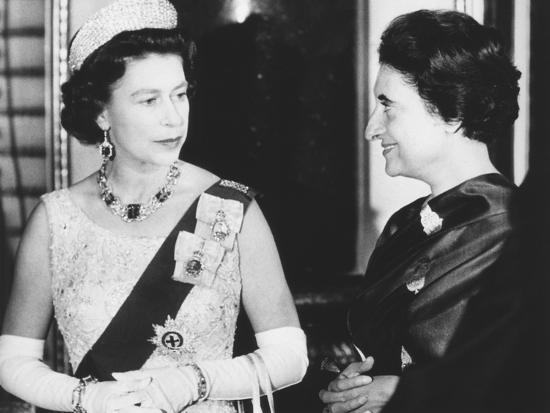By Dr. Geeta Oberoi
(Professor, National Judicial Academy, India)
I would ask all women to celebrate courage of Elizabeth I, Queen of England and Ireland. Her reign saw one of the finest developments in the history of mankind. However, I would also call upon women to mourn on murder of her brave cousin Mary, Queen of Scots, who was wrongly imprisoned and wrongly beheaded at Fotheringhay Castle in England accusing her for complicity in a plot to murder Queen Elizabeth I.
I call upon readers to respect both women and diversity that female gender have offered historically and politically. Similarly, we must celebrate contribution of our first female Prime Minister Indira Gandhi for all the courage she has shown amidst as difficult circumstances as Elizabeth I would have faced in her times from all male courtiers. She too changed India considerably and contributed to either establishment or strengthening of every institution that we see around us. I do know that there is a pressure to only remember emergency period as if this was the only worst period in the history of this land. As if no wrong ever happened in any period pre-emergency or in any time after conclusion of emergency in India. I therefore ask all women to celebrate every decision taken by women – and not be carried away by just the faults on their part.
For faults are committed by all genders and not limited exclusively to female gender. Elizabeth I cannot be judged on premise of execution of her cousin Mary alone, howsoever, wrongful that execution was and so also we Indians must look up to Indira Gandhi beyond lenses of decision to declare emergency. Both Elizabeth I and Indira Gandhi took some political wrong decisions but those political wrong decisions are not the only ones to be remembered.
For a change, let us celebrate both these women and all their decisions, even if they were politically incorrect, as all their decisions brought real change in the world. The reign of Elizabeth I is known as the golden age in English history. It is renowned as one of the most splendid ages in English literature and a great age of English exploration. It was also an era which instilled national pride in the people of England.
Among the most well known achievements of Queen Elizabeth are: the defeat of the great Spanish Armada, which is regarded as one of the greatest military victories in English history; and the Elizabethan Religious Settlement, which provided a long lasting middle way between Roman Catholicism and Protestantism. When Elizabeth I took over the throne of England, she inherited a virtually bankrupt state from previous reigns. She thus introduced frugal policies to restore fiscal responsibility. Her fiscal restraint cleared the regime of debt by 1574, and ten years later the Crown enjoyed a surplus of £300,000.
Similarly, Indira Gandhi whose works that led to India’s self-sufficiency in food grain production, success in the Pakistan war which resulted in creation of Bangladesh in 1971, nationalization of private banks, first nuclear test at Pokhran, her attempts to control militancy that cost her life, her active interest in arts and culture and her efforts in preservation that led to setting up of so many museums, her love for flora and fauna that provided protection from pollution in terms of green belts and so many other decisions – cannot be overlooked by wearing sunglasses tinted with prejudices of menkind – who even wishes to take away our liberty to fault.
I also ask readers to judge execution of 37 years old Marie Antoinette carefully – by not celebrating it, but by condemning it and mourning it. Marie Antoinette whose husband was killed, who was imprisoned, whose head after the execution when it fell on the ground was shown to the crowd, who cried: “Vive la République!” I ask today in 2021, has the gap between the rich and the poor reduced in France after execution of Marie Antoinette? Is society equal now? Do we not see everywhere rich showing their pictures of extravagance on their instagram accounts and at the same time thousands dying in extreme poverty not even cared for by people who wear undergarments worth millions? So, even if, assuming, that Marie Antoinette was insensitive, was she not entitled to human imperfections? Has poverty, inequality, injustice, unfairness evaporated from the French part of the earth after execution of Marie Antoinette?
I therefore call again women readers to celebrate- Elizabeth I (1558-1603), Marie Antoinette (1775-1793), Indira Gandhi (1917-1984) and their perfection as well as imperfections, for faults are natural and cannot be avoided howsoever perfect a human being may claim to be.
Note : First Published In ‘Rising Kashmir’


